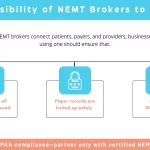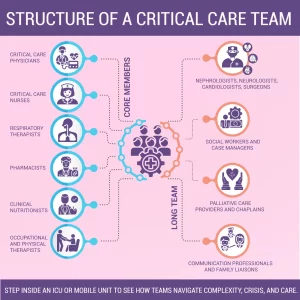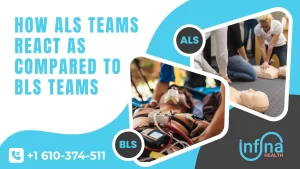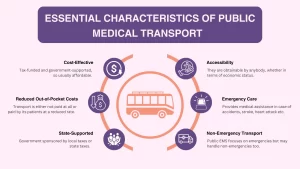What Does the ‘Special Needs’ in Special Needs Transport Really Mean?
Transportation is a critical aspect of daily life, but for individuals with disabilities, medical conditions, or other special requirements, getting from point A to point B can present unique challenges. This is where the concept of special needs transport comes into play. Special needs transportation, in its broadest sense, refers to transportation services that are tailored to meet the unique requirements of individuals who face physical, mental, or emotional challenges that make traditional forms of transportation unsuitable.
But what exactly does “special needs” mean in the context of medical transport? It is a broad term that can include a wide range of services and accommodations, including everything from accessible vehicles for those in wheelchairs to specialized services for individuals with cognitive disabilities. To fully understand the scope and significance of special needs transport services, we must explore the types of special needs it addresses, the services it provides, and how it is designed to meet the specific needs of different individuals.
In this blog, we will look into what constitutes special needs transport, the factors that define the services, and how they make a profound difference in the lives of individuals who require them.

Child in a wheelchair being dropped off by special needs transport for students, with two assistants providing support.
What Constitutes Special Needs?
Before getting into special needs transport itself, it’s essential to understand what qualifies as “special needs.” This umbrella term encompasses a wide range of conditions and circumstances, including:
- Physical Disabilities: Individuals with mobility challenges, whether due to paralysis, amputations, neurological disorders, or other physical impairments, require transport that is equipped to accommodate wheelchairs, mobility aids, or even medical equipment like oxygen tanks.
- Cognitive and Developmental Disabilities: Special needs transport is equally vital for those who experience cognitive or developmental challenges, such as autism, Down syndrome, or other intellectual disabilities. This group may require assistance with communication, additional time to board, or caregivers who can help navigate the transportation process.
- Elderly Adults: As people age, they often encounter physical limitations that may include difficulty with mobility, vision, or hearing. Senior citizens, especially those with conditions like dementia, Alzheimer’s, or general frailty, may need specialized transport services.
- Mental Health Issues: Some individuals with mental health conditions, including anxiety, PTSD, or depression, may experience heightened stress in busy public transport environments. Specialized services can reduce anxiety by offering private, calm, and safe transportation alternatives.
- Medical Conditions: People dealing with medical conditions, such as cancer, heart disease, or respiratory issues, may require transportation that accommodates their need for rest, monitoring, or immediate medical assistance. For example, a patient undergoing chemotherapy might not be able to use regular transport due to their weakened immune system or nausea.
- Temporary Needs: Special needs transport isn’t just for those with permanent disabilities. Individuals recovering from surgeries, accidents, or temporary conditions like a broken leg or pregnancy complications may also require assistance during their recovery.
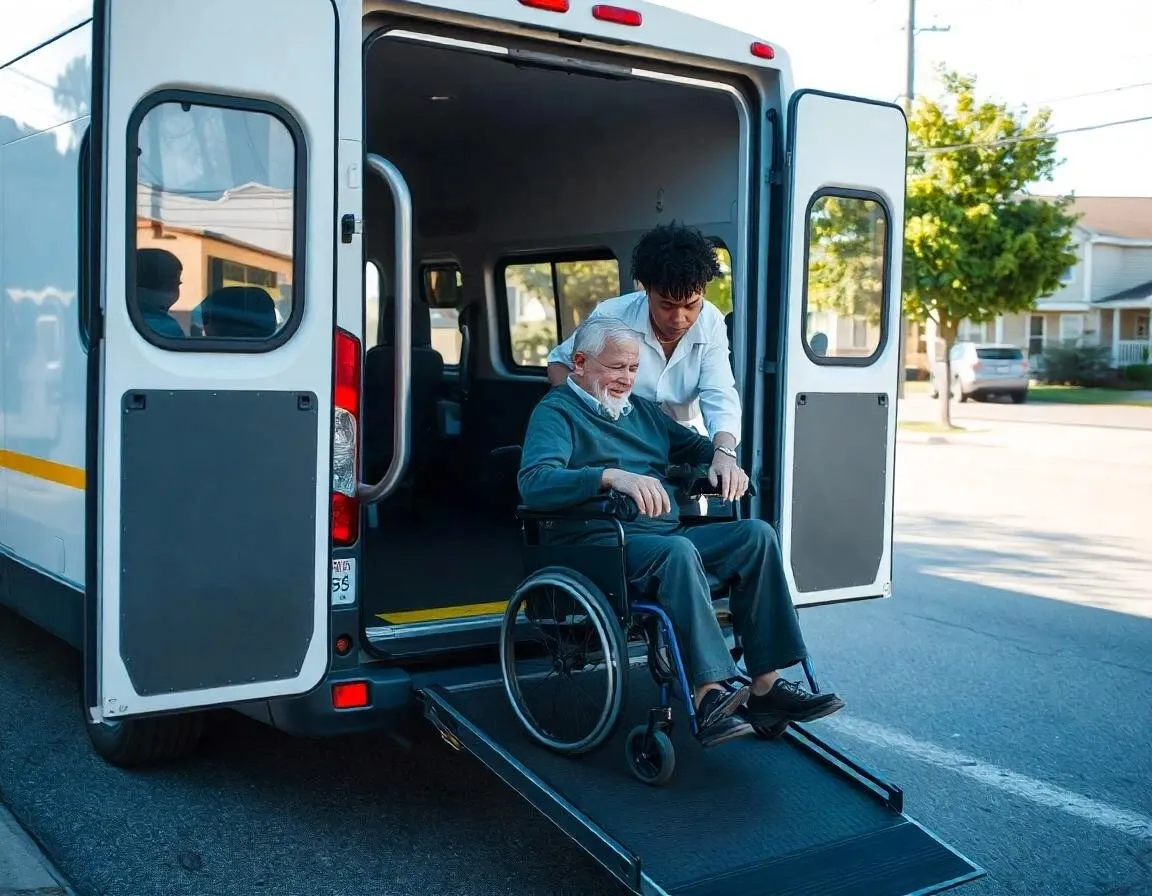
Female medical professional assisting an elderly man in a wheelchair to get off a ramp in a special needs transport service.
What Are Special Needs Transport Services?
Special needs transport services are designed to offer safe, reliable, and accessible transportation to those with the above-mentioned needs. Depending on the individual’s situation, these services can vary greatly in terms of equipment, staff, and the nature of the transportation itself. Below are some common forms of special needs transportation services:
1. Wheelchair Accessible Vehicles
Wheelchair accessible vehicles are designed to accommodate passengers who use wheelchairs. These vehicles are typically equipped with ramps or lifts to allow easy boarding, and they often have tie-downs to secure wheelchairs during the journey. WAVs are essential for individuals who cannot transfer from their wheelchair into a regular vehicle.
2. Non-Emergency Medical Transportation (NEMT)
Non-emergency medical transport is a service that caters to individuals who need transportation to and from medical appointments, but do not require urgent medical care during transit. This can include regular checkups, rehabilitation sessions, or dialysis appointments. NEMT services often include specialized drivers and vehicles, and in some cases, the presence of a caregiver or medical staff.
3. Ambulance Services
Ambulance services that cater to special needs are different from regular emergency ambulance services. They are equipped to transport individuals who may need medical monitoring, intravenous therapy, or assistance during the journey, but who do not require urgent care.
4. Door-to-Door Services
Some special needs transport services are designed for individuals who require door-to-door assistance. This means the transport company will pick the individual up from their home or designated location and drop them off directly at their destination. This eliminates the need for passengers to navigate public spaces, which can be daunting for some.
5. Paratransit Services
Paratransit is a form of transportation that is often used in conjunction with public transit systems. It provides door-to-door service for individuals who are unable to use standard public transportation due to their disability. These services are typically more flexible than traditional bus routes, and they are available in many cities around the world.
6. Caregiver or Attendant Accompaniment
Some individuals with special needs may require an attendant or caregiver during their trip. This can include someone to help with mobility, assist with feeding or medication, or simply provide emotional support. Transport services can provide drivers who are trained in assisting individuals with specific needs, or they may allow the passenger to bring their own caregiver along.
Ready to experience specialized transport? Schedule a service with us and ensure safe, comfortable travel for those with special needs!
Key Factors in Special Needs Transport Design
When creating a transport system that caters to special needs, several factors must be considered to ensure that services are truly inclusive, accessible, and safe. Here are some of the key design elements that make special needs transport service unique:
1. Accessibility:
Vehicles must be designed or modified to accommodate wheelchairs, walkers, and other mobility devices. This includes ramps or lifts for easy boarding, adequate space inside the vehicle, and securement devices to hold wheelchairs and other medical equipment in place.
2. Trained Drivers:
Drivers should be trained not only in safe driving but also in understanding the unique needs of passengers with disabilities. This can include first aid training, knowledge of specific disabilities, and how to assist with medical equipment and mobility aids.
3. Safety Standards:
Safety is paramount, and vehicles should adhere to strict safety standards, especially for passengers with serious medical conditions. This includes secure restraints for both passengers and mobility devices, the ability to transport medical equipment, and features like backup power systems for medical devices.
4. Flexibility and Timeliness:
Special needs transportation services must be flexible in their scheduling and routes. Unlike public transportation, these services often need to accommodate specific pick-up and drop-off times that coincide with medical appointments or therapy sessions. Timeliness is critical for ensuring that individuals can make their appointments on time, especially for medical treatments.
5. Emotional Support:
Individuals with cognitive, developmental, or emotional disabilities may also require emotional or social support during their transport. Drivers or attendants who can provide calming reassurance can greatly reduce anxiety and stress for these passengers.
6. Cleanliness and Comfort:
For passengers who are ill or physically frail, comfort during transport is important. Vehicles should be clean, well-maintained, and equipped with features such as comfortable seating, climate control, and appropriate lighting.
How Special Needs Transport Improves Quality of Life
Special needs transport service plays a crucial role in improving the quality of life for individuals with disabilities or medical conditions. Here are just a few ways these services make a profound impact:
- Independence: For many individuals, special needs transport services allow them to maintain their independence by providing access to critical services and opportunities that would otherwise be out of reach.
- Access to Medical Care: Regular transportation to and from medical appointments is vital for individuals with chronic conditions. Special needs transport ensures that they can attend these appointments without complications.
- Social Inclusion: Special needs transport services often help individuals participate in social activities, visit friends and family, or go on outings, fostering a sense of inclusion in the community.
- Reduced Anxiety: For individuals with cognitive or emotional challenges, specialized transport can significantly reduce the anxiety and stress that may come with using public transportation or regular taxi services.
- Safety and Security: The specialized nature of these services ensures that passengers are safer and more comfortable during their trips. The focus on safety, from secure seating arrangements to specialized driver training, contributes to peace of mind for both passengers and their families.
Conclusion
Special needs transportation is a vital service that enables individuals with physical, cognitive, and medical challenges to access transportation that meets their specific needs. Whether it’s for medical appointments, social activities, or simply maintaining independence, these services provide a lifeline to those who would otherwise face significant barriers in accessing essential services.
At Infina Health, we are proud to offer the best medical standby services for individuals with special needs. Our team of trained professionals, coupled with state-of-the-art, accessible vehicles, ensures that you or your loved ones can travel safely, comfortably, and with the support necessary for a positive experience. Whether you need non-emergency medical transportation, ambulance services, or other forms of specialized transport, Infina Health is committed to providing the highest standard of care to support your needs.

